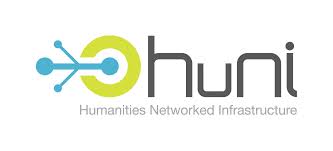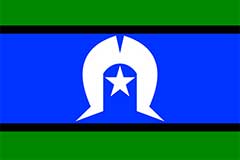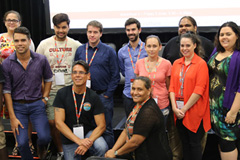
AIATSIS contributes metadata from its collections catalogue, Mura®. In addition to contributing information on this dataset, AIATSIS provides guidance on the HuNI steering committee and expert data advice on the dataset.
The Mura® dataset contains records of the world's most comprehensive collection of print, audio recordings, photographic materials and moving images relating to Australian Aboriginal and Torres Strait Islander cultures, languages and histories. As a result of decades of expert documentation, the records on Mura® are rich in metadata. Mura® is the name of the AIATSIS collections catalogue and comes from the Ngunnawal language meaning pathway.
AUSTLANG, another of AIATSIS datasets, is a unique web-based resource on Australian Indigenous languages which provides a single location where users can obtain information and resources, from a range of sources, in and about Australian languages.
Impact statement
HuNI’s consolidated search capability across multiple datasets enhances the ability for researchers to discover, analyse and share data that has previously been difficult to interrogate across the many humanities disciplines. It is anticipated that this ease of access will yield new scholarly outcomes and deepen the world’s understanding of Australian culture across space and time.
Researcher tools developed elsewhere by others will be able to access the combined HuNI aggregate data service, affording researchers the opportunity to use specialised tools to analyse the data further.
Project team
The HuNI steering committee is supported by Research Business Manager, Mr Pravin Adip.
Partnerships
The HuNI project is a partnership between 13 organisations and is led by Deakin University in Melbourne. Central to this partnership are the two lead development agencies, Victorian eResearch Strategic Initiative (VeRSI) and Intersect (http://www.intersect.org.au/about). These two organisations are responsible for hosting Team HuNI and building the HuNI technical and ontological components.
The remaining 10 partners of HuNI, of which AIATSIS is one, are contributing to the project by providing a significant cultural dataset and/or tool for integration into the HuNI Virtual Lab.




